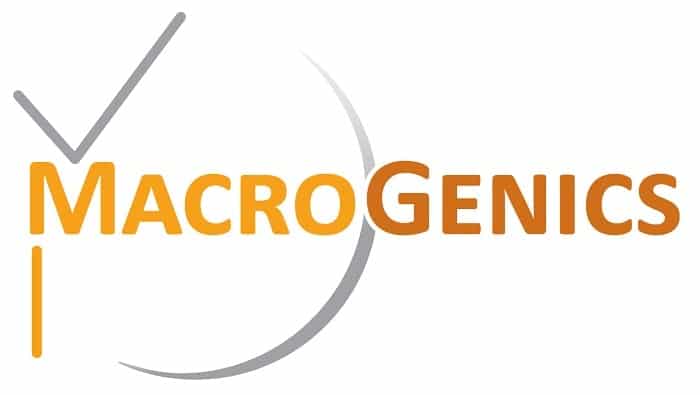MacroGenics, Inc. a clinical-stage biopharmaceutical company focused on discovering and developing innovative monoclonal antibody-based therapeutics for the treatment of cancer, announced presentation of data from its clinical trial of margetuximab plus pembrolizumab for patients with advanced gastric and gastroesophageal junction (GEJ) cancers in a poster session at the 2018 ASCO Gastrointestinal Cancers Symposium in San Francisco, California. The poster was titled “Phase 1b/2 Study of Margetuximab Plus Pembrolizumab in Advanced HER2+ Gastroesophageal Junction or Gastric Adenocarcinoma.”
This Phase 1b/2 open-label, dose escalation study evaluates margetuximab, an Fc-optimized anti-HER2 monoclonal antibody, in combination with pembrolizumab, an anti-PD-1 antibody. The trial seeks to characterize the safety, tolerability, maximum tolerated dose, and preliminary anti-tumor activity of this combination. Enrolled patients had relapsed or refractory advanced HER2+ gastric or GEJ cancer with disease progression after or resistance to treatment with trastuzumab plus chemotherapy. Study patients were enrolled irrespective of PD-L1 expression status.
A Phase 1b dose escalation segment of the study tested dose levels of 10 and 15 mg/kg margetuximab in combination with a flat dose of 200 mg pembrolizumab every three weeks. After completion of dose escalation, Phase 2 dose expansion cohorts were enrolled, including a 30 patient cohort in North America and a 30 patient cohort in Asia. Sixty dose expansion patients received margetuximab at 15 mg/kg and 200 mg of pembrolizumab every three weeks.
Acceptable tolerability was observed in the safety population of 67 patients. Grade 3 or higher treatment-related adverse events (TRAE) occurred in 11.9% of patients. The most common TRAE of any grade was fatigue (14.9%).
As of the December 4, 2017 data cut-off date, responses were evaluable from 51 patients, including 25 with gastric and 26 with GEJ cancer. The Overall Response Rate (ORR) was higher in patients with gastric vs. GEJ cancer (32% vs. 4%). ORR across all patients in the study was 18% (six confirmed and three unconfirmed patients). Similarly, Disease Control Rate (including partial responses and stable disease) was higher in patients with gastric vs. GEJ cancer (72% vs. 38%). Median progression-free survival was also higher in patients with gastric vs. GEJ cancer (5.5 vs. 1.4 months).
“We are encouraged by the tolerability and anti-tumor activity of this novel, chemotherapy-free regimen combining margetuximab with an anti-PD-1 mAb for treatment of patients with advanced HER2+ gastric cancer,” said Scott Koenig, M.D., Ph.D., President and CEO of MacroGenics. “We are expanding the study by enrolling 25 additional gastric cancer patients and will continue to evaluate biomarkers, including HER2 and PD-L1 expression, to determine the patients who are most likely to benefit from margetuximab plus anti-PD-1 therapy. We expect to provide an update on these data later this year and define future development options for this regimen in the context of existing standard-of-care.”
The poster presented at the 2018 ASCO Gastrointestinal Cancers Symposium is available for download from the Events & Presentations page on MacroGenics’ website at http://ir.macrogenics.com/events.cfm
About Margetuximab
Margetuximab is an Fc-optimized monoclonal antibody that targets the human epidermal growth factor receptor 2, or HER2 oncoprotein. HER2 is expressed by tumor cells in breast, gastric, gastroesophageal, bladder and other forms of solid tumor cancers, making it a key marker for biologic therapy. The Phase 1b/2 study of margetuximab in gastric and gastroesophageal cancer incorporates pembrolizumab, which is provided by Merck & Co., under a previously announced arrangement. MacroGenics is also studying margetuximab as a potential treatment for metastatic breast cancer in a Phase 3 study called SOPHIA, for which an interim futility analysis is expected to be completed by the end of January 2018.
About MacroGenics, Inc.
MacroGenics is a clinical-stage biopharmaceutical company focused on discovering and developing innovative monoclonal antibody-based therapeutics for the treatment of cancer, as well as autoimmune disorders and infectious diseases. The company generates its pipeline of product candidates primarily from its proprietary suite of next-generation antibody-based technology platforms. The combination of MacroGenics’ technology platforms and protein engineering expertise has allowed the Company to generate promising product candidates and enter into several strategic collaborations with global pharmaceutical and biotechnology companies. For more information, please see the Company’s website at www.macrogenics.com. MacroGenics, the MacroGenics logo, and DART are trademarks or registered trademarks of MacroGenics, Inc.
CONTACTS:
Jim Karrels, Senior Vice President, CFO
MacroGenics, Inc.
1-301-251-5172,
info@macrogenics.com
Karen Sharma, Senior Vice President
MacDougall Biomedical Communications
1-781-235-3060,
ksharma@macbiocom.com



















